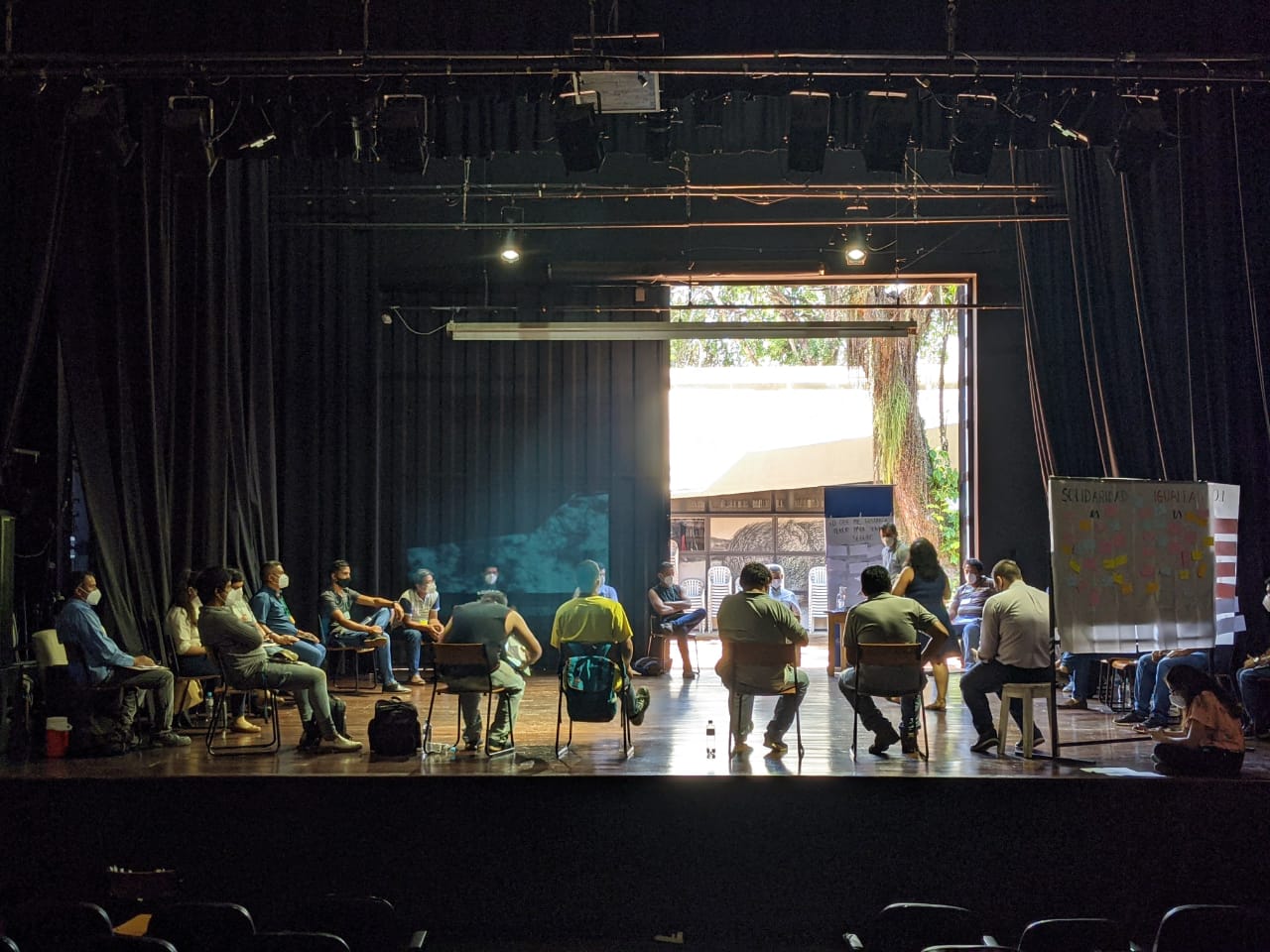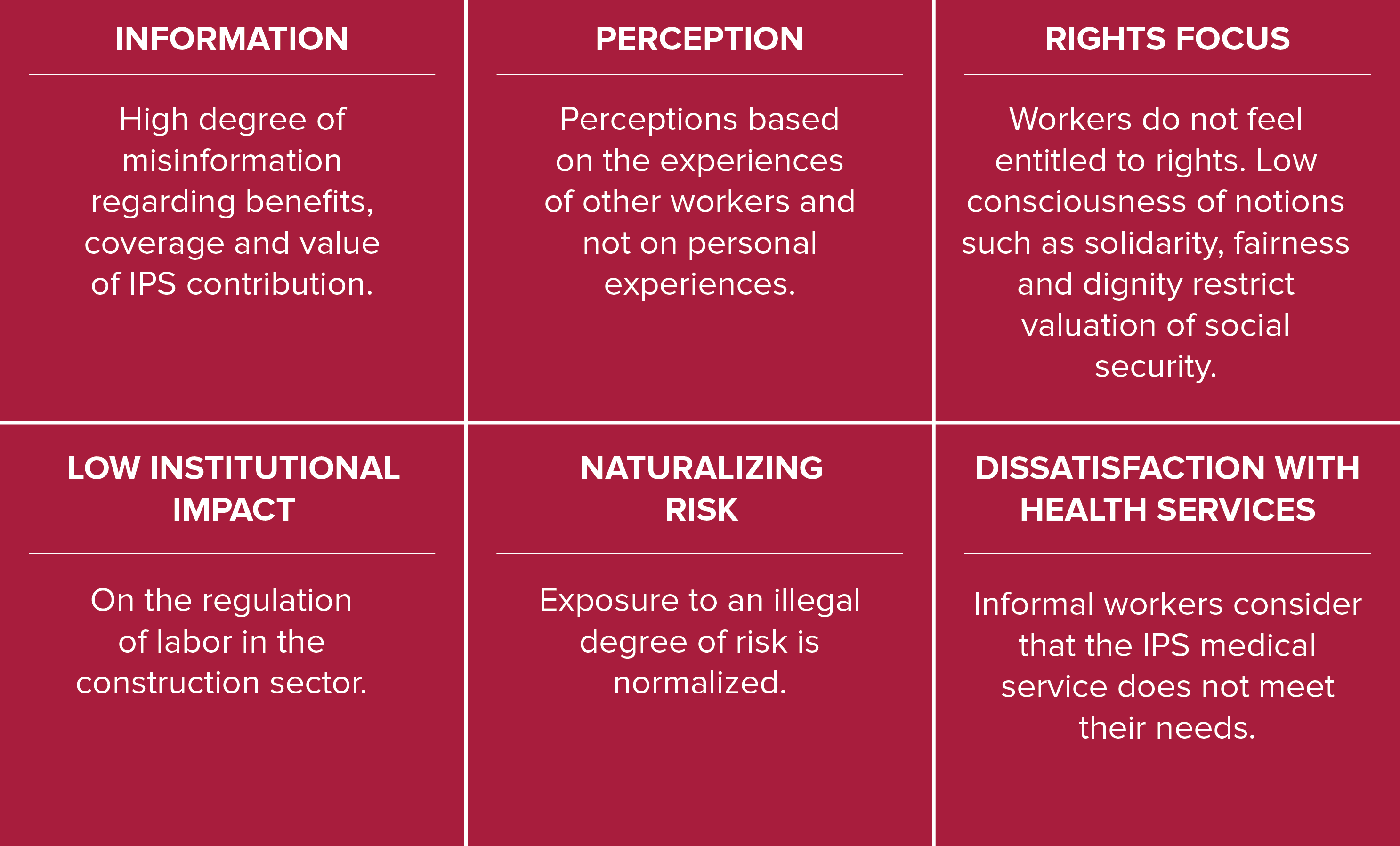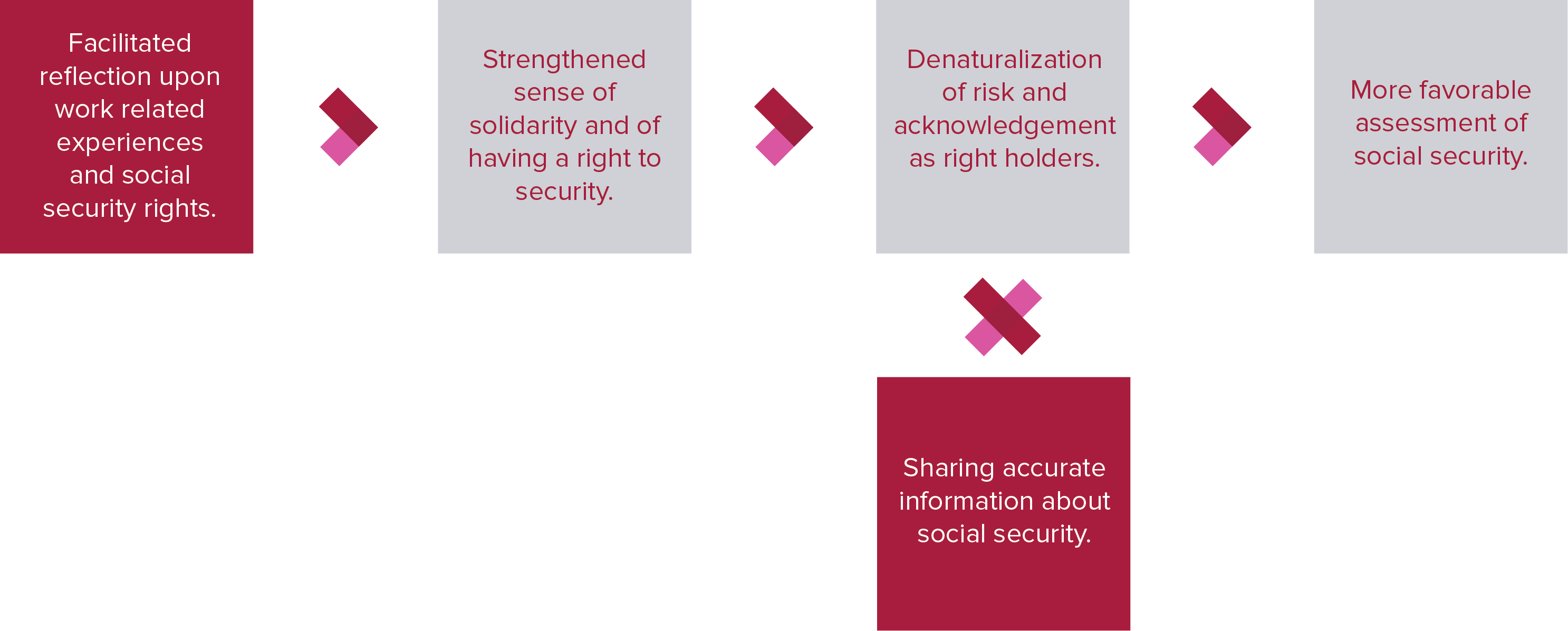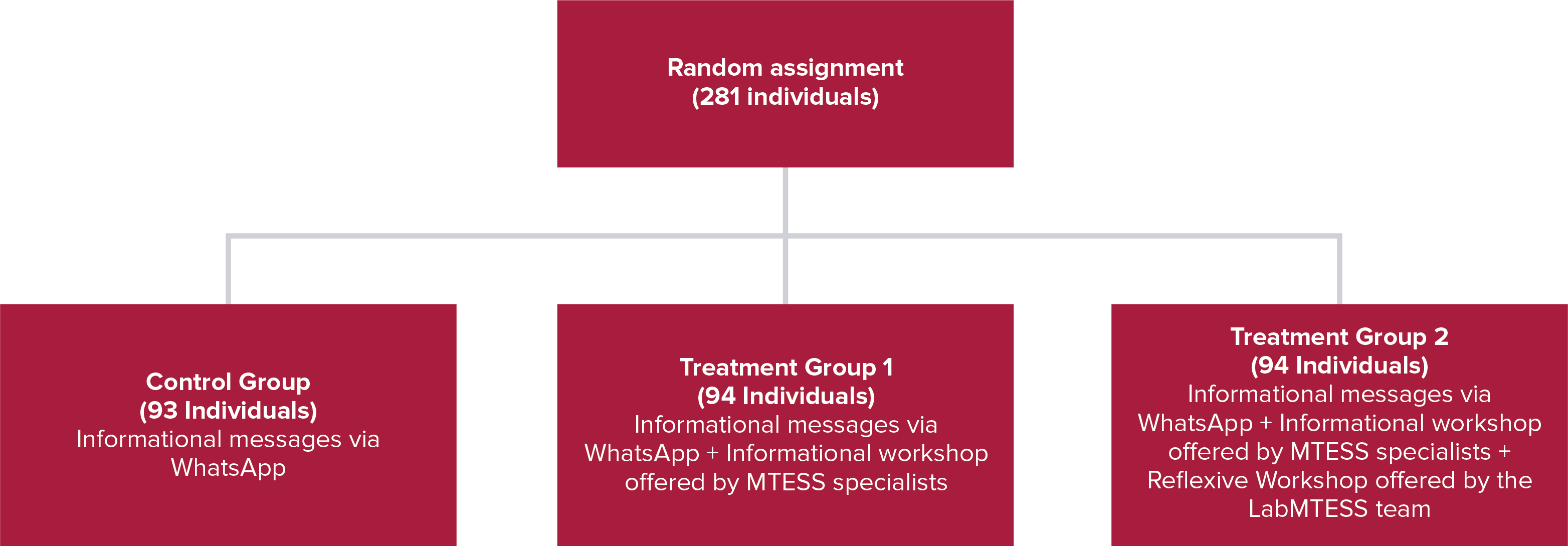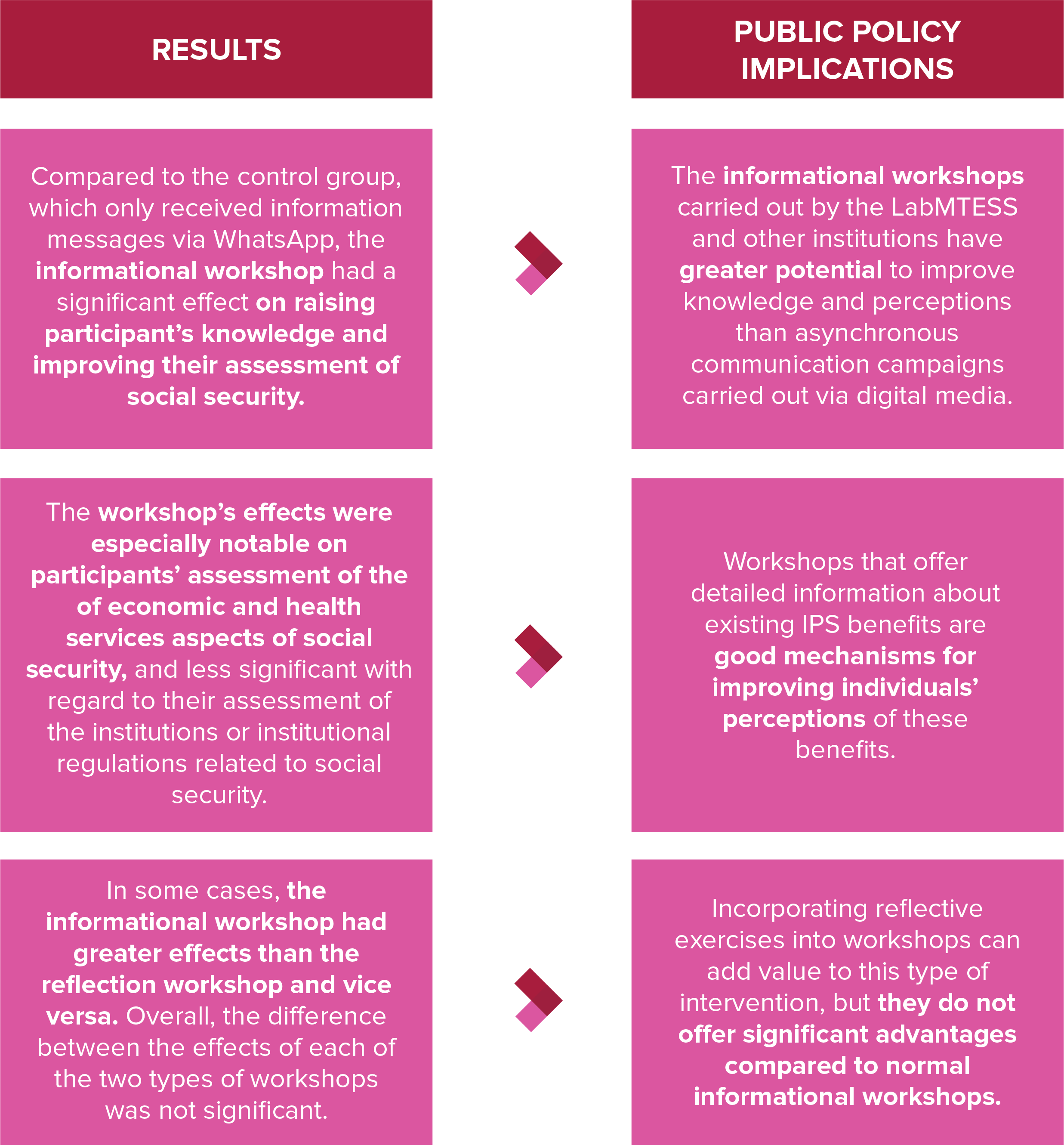How raising awareness and facilitating reflection on social security builds construction workers’ knowledge and improves their assessment of formalization
Building good knowledge regarding social security and formalization
19 de Mayo de 2022
Photo: Cristhian Parra
How do we overcome the barriers to employment formalization in the construction value chain? In 2020, we kicked off the first LabMTESS learning loop with this question. LabMTESS is the participatory research unit of Paraguay’s Ministerio de Trabajo, Empleo y Seguro Social (Ministry of Labor, Employment and Social Security).
Four months of research and participatory action in the construction industry, revealed six barriers to formalization. In this blogpost, we’ll discuss the experiment we designed in order to learn about one of those barriers, thus closing out the first phase of LabMTESS with useful evidence for the design of public policies for labor formalization.
Why is there low access to social security in the construction sector?
”The little I know about having IPS is that it deducts a lot and you get very little out of it, but you pay a good sum each month...in one year you use it a maximum of two or three times. It's fine for families, but sometimes times are hard and because it is discounted automatically, it can get tough.” (Participatory Workshop Participant, September 24, 2020).
In earlier posts, we explained how our research with key value chain actors revealed six barriers to labor formalization in the sector.
Some barriers are institutional, others are related to the sector’s cultural norms and practices as well as dissatisfaction with the health services offered by the IPS.
However, the most persistent barriers facing the workers that accompanied us during our research are related to low levels of accurate information, and to poor or misinformed perceptions and assessments of the IPS and of their own status as rightsholders.
“For what you get out of service by the IPS, they take a lot of money, 25% of your pay, they don’t give you service, they say you’ll get your turn and if you are about to die, you don’t because it’s not possible. It's too much for the services they offer” (Participant from the Workshop with workers in construction, Exploration Phase, September 24, 2020).
This research finding served was foundational to the experiment designed by LabMTESS. Taking into account our resources, time constraints, and the COVID-19 pandemic, the team decided to tackle three of the identified barriers—poor information, poor perception and the lack of a rights focus—with a single intervention.
Why do we focus on raising awareness and facilitating reflection?
Based on the findings from previous phases of our research, we constructed the following causal chain, which posits that reflection exercises on the right to social security can generate a sense of solidarity that helps denaturalize excessive risks and promotes recognition of workers as rightsholders. We hypothesize that this type of reflection, combined with accurate information about social security, its benefits, and institutional rules, can boost workers’ positive assessment of social security.
Our hypothesis: access to information and reflection spaces improves workers’ assessment of social security
We designed a randomized control trial in order to test our hypothesis. In this experiment: a group of individuals were randomly assigned to three different subgroups: a control group, treatment group 1, and treatment group 2. Each treatment group receives a different treatment, while the control group does not receive any treatment.
281 construction sector workers were convened for this experiment via a socioeconomic questionnaire circulated on social media. There were two criteria for inclusion: (1) having completed a technical training course in construction work, and/or (2) having construction work experience. Unfortunately, the rise in COVID-19 infections limited how many participants we would have in a physical meeting space and affected worker participation. In total, 70 workers attended workshops in the month of December 2020. Of these, 24 were assigned to the control group, 18 to the treatment group 1, and 28 to treatment group 2.
For the trial, we measured workers’ knowledge, perceptions, and reflections regarding social security by means of a questionnaire about each of these measurement areas. Based on workers’ responses, we developed the following indices, which serve as the indicators for measuring the treatments’ impact.
1. knowledge index: this measures workers’ overall knowledge about social security (economic benefits, health services, and institutional regulations)
2. perception index: this measures workers’ assessment of social security, specifically with regard to its economic, health and rights dimensions.
3. reflection response index: this measures the treatments’ effect on workers’ response to diverse moral dilemmas related to social security.
Impact: Yes, information has the power to change workers’ perception
After calculating the index scores, we estimated the differences between the control group and the treatment groups by means of a statistical analysis of the data generated1. Because of the randomized group assignment, we ensured that any differences we found between the control group and the treatment groups could be attributed to the treatment.
These results indicate that, overall, the informational workshops organized by MTESS, combined with reflection exercises on rights, represent a good investment of public resources for increasing knowledge and improving perceptions about social security.
In other words, informational workshops have more potential than digital campaigns. These effects were especially notable on participants’ assessment of the of economic and health services aspects of social security.
In some cases, the informational workshop was more effective than the reflection workshop, and vice versa. Overall, the differences in impact generated the two types of workshops were not significant. Thus, we argue that incorporating reflective exercises into informational workshops does not add much value to this type of intervention.
More and better information produces better results
When it comes to labor formalization policies, increasing access to information about social security and labor rights helps build and improve workers’ knowledge and perceptions about this social program.
Our experiment lends credence to certain existing strategies for overcoming barriers to informational access. However, by themselves these are not nearly enough. Improving access to social security requires addressing other barriers. It is necessary to clarify the legal responsibilities of contractors and subcontractors in the value chain, to streamline bureaucratic processes, and improve labor inspection, among other steps.
The experimental approach adopted for this project, and for the entire LabMTESS learning loop, will allow us to address each of these barriers through evidence-based reasoning produced, crucially, with significant levels of worker participation.
By Claudia Montanía, Fernando Ovando, Georgina Hernández, Mónica Recalde, Cristhian Parra, Gustavo Setrini y Mónica Ríos
-
Para leer en español, click aquí.

 Locations
Locations